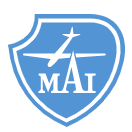Introduction
The Moscow Aviation Institute (MAI) is a Russian national research university. Its Russian name is Московский авиационный институт, or MAI for short. The school enjoys a high reputation in the field of aerospace and is a Russian member of the Sino-Russian Alliance of Engineering Universities. It has trained a large number of outstanding talents in the field of aerospace in Russia and even the world.
Overview
Student size: 20,500 students, including more than 1,200 international students from 67 countries.
Faculty: The school has a highly qualified faculty. The teachers not only have outstanding achievements in academic research, but also actively participate in the practice of aerospace engineering, providing students with professional and practical teaching guidance.
History and establishment time
Founded in 1930, it was originally based on the Department of Aeronautical Mechanics of the Bauman Moscow State Technical University, aiming to train professional talents for the Soviet aviation industry to meet the urgent needs of the Soviet Union's industrialization for aviation engineering technicians at that time.
School strength
Teaching achievements: As of September 2023 In January, the school has trained 50 Russian academicians, 23 astronauts, 250 chief designers and deans of research institutes and corporate presidents, 150 test pilots and Russian hero pilots, and 17 university presidents.
Scientific research cooperation: The school has established close cooperative relations with many internationally renowned companies such as Airbus, Boeing, and COMAC, with a total annual scientific research contract amount of 32 million US dollars, providing students with broad internship and employment opportunities.
Institutional nature
National research university.
Educational philosophy
Emphasizing the concept of engineering education, committed to cultivating outstanding engineering and technical talents in the world, focusing on the comprehensive cultivation of students' knowledge, skills, abilities and practices, combining in-depth theoretical knowledge with various practical skills, so that students can better adapt to the actual work needs in the field of aerospace.
Key laboratories and disciplines
Key laboratories: The school has 128 laboratories, 3 Design bureaus, computer centers, an experimental factory, a set of sports aviation training facilities, an airport near Moscow, and two scientific research institutions, namely applied mechanics and electrical mechanics, cryogenic research.
Key disciplines: Aeronautical engineering, engine engineering, control systems, information and power, radio electronics, aerospace engineering, applied mathematics and physics are the key disciplines of the school, among which aircraft, engine and aerospace are relatively famous.
Faculty
The school has 13 colleges, including the School of Aeronautical Engineering, the School of Engines, the School of Control Systems, the School of Information and Power, the School of Radio Electronics, the School of Economics and Management, the School of Aerospace, the School of Applied Mathematics and Physics, the School of Humanities, etc.
Ranking
In the QS World University Rankings by Subject, it is ranked 401-450.
Expenses
The tuition fees of Moscow Aviation Institute vary depending on the major. Generally, the undergraduate tuition fee is about US$3,000-4,000 per year, and the master's tuition fee is about US$4,000-5,000 per year.
Campus
Teaching facilities: The school's campus is located in the center of Moscow, close to three subway stations, and the transportation is very convenient. The campus has complete teaching facilities, including classrooms, research centers, numerous laboratories and resource centers, design bureaus, and an experimental pilot factory, providing students with good learning and practice conditions.
Living facilities: The infrastructure is complete, providing students with a comfortable accommodation environment, as well as various leisure and entertainment facilities, such as sports facilities and more than 50 sports clubs. The Student Cultural Center will also hold various activities for international students to enrich students' extracurricular life.
-

Peter the Great St.Petersburg Polytechnic University
-
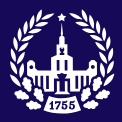
Moscow State University M. V. Lomonosov
-
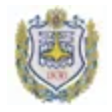
Bauman Moscow State Technical University
-
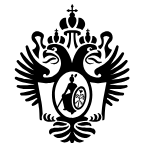
St. Petersburg State University
-
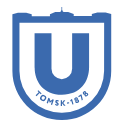
Tomsk State University
-

Peoples' Friendship University of Russia
-

Don State Technical University
-
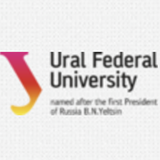
Ural Federal University
-

Moscow Institute of Physics and Technology
-
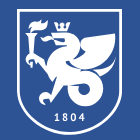
Kazan Federal University
-

Mesoamerican University
-

Istmo University
-

Mariano Galvez University of Guatemala
-

Regional University of Guatemala
-

Galileo University
-

Francisco Marroquín University
-

Rafael Landívar University
-

University of the Valley of Guatemala
-

University of San Carlos of Guatemala
-

Technological Institute of Tlaxcala Plateau
-

Golfo University
-

Technological University of South Sonora
-

Technological University of Huejotzingo
-

Tizimín Institute of Technology
-

Chilpancingo Institute of Technology

